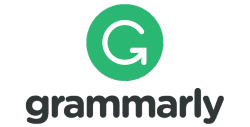Focus and Scope
Recently, the value of arts studies in higher education level is often phrased in enrichment terms- helping scholars find their voices, and tapping into their undiscovered talents. IJCAS focuses on the important efforts of input and output quality rising of art education today through the experiences exchange among educators, artists, and researchers with their very own background and specializations. Its primary goals is to promote pioneering research on creative and arts studies also to foster the sort of newest point of views from art field or non-art field to widely open to support each other. The journal aims to stimulate an interdisciplinary paradigm that embraces multiple perspectives and applies this paradigm to become an effective tool in art higher institution-wide reform and fixing some of biggest educational challenges to the urban imperative that defines this century. IJCAS will publish thoughtprovoking interdisciplinary articles, reviews, commentary, visual and multi-media works that engage critical issues, themes and debates related to the arts, humanities and social sciences. Topics of special interest to IJCAS include ethnomusicology, cultural creation, social inclusion, social change, cultural management, creative industry, arts education, performing arts, and visual arts.
Section Policies
Articles
Editorial
Book Review
Conference Report
Peer Review Process
- As peer-reviewed international journal, IJCAS welcomes the submission of articles and reviews from a wide range of disciplines including but not limited to anthropology, business and management, architecture, sociology, psychology, cultural studies, cinema studies, pop art, politic-economics and neuroscience that related to arts and culture.
- Contributions may encourages the following types of articles which are completed research papers, student papers (research done by students), and case studies in any of the topic areas or related areas, book reviews, conference reports with the mutual understanding that they have not been published elsewhere and are not currently under consideration by any other English language journal(s).
- All articles published in this journal will have been have been fully peer-reviewed by two-three experts who have specialized knowledge of the subject area and are often times researchers themselves with the aim of reaching an initial decision within a two-month time frame. Submissions that are out of the scope of the journal will not be reviewed.
- The peer reviewers check the manuscipt for clarity, accuracy and assess the validity of the research methodology and theoritical base, provide feedback to the editor.
- The reviewers have specialized knowledge of the subject area and are often times researchers themselves. They review the article for quality of research. Their goals to find any gaps in reasoning and to ensure that nothing has been overlooked.
- The article is returned to the editor along with a recommendation to either reject the article, revise it or accept it.
- The editor may send reviewer’s comments to the authors who may then revise and resubmit the article for further review. If the article does not maintain sufficiently high scientific standars, it may reject at this point. In all cases, the ultimate decision lies with the Editor-in-Chief after a full board consultation.
- The views expresses in IJCAS articles published are the sole responsibility of the authors and not necessarily shared by the IJCAS editors or Postgraduate Program of Indonesia Institute of the Arts Yogyakarta.
Open Access Policy
This journal provides immediate open access to its content on the principle that making research freely available to the public supports a greater global exchange of knowledge.
Archiving
This journal utilizes the LOCKSS system to create a distributed archiving system among participating libraries and permits those libraries to create permanent archives of the journal for purposes of preservation and restoration. More...





